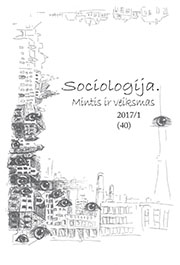Isaiah Berlin, Michel Foucault and the Politics of Neoliberal Freedom
Isaiah Berlin, Michel Foucault and the Politics of Neoliberal Freedom
Author(s): Tom DriverSubject(s): Structuralism and Post-Structuralism, Sociology of Culture, Socio-Economic Research
Published by: Vilniaus Universiteto Leidykla
Keywords: Isaiah Berlin; Michel Foucault; freedom; power; neoliberalism; homo economicus;
Summary/Abstract: Starting with a historical inquiry into the notion of freedom as a political concept, in this article I argue that neoliberal freedom has attempted to satisfy demands associated with two quite distinct forms of freedom, representing a new understanding of the concept. Drawing on Isaiah Berlin’s lecture on the two conceptions of liberty – positive freedom to and negative freedom from – I consider their apparent heterogeneity, stemming from alternate relations towards individuals, and forming the basis of opposing political systems. Against this opposition, the neoliberal notion of freedom, as developed in the early works of liberal economists and their vision of a social market economy, is marked by a synthesis of politics and the economy, one that enables social regulation in conformity with market demands. Reflecting Foucault’s argument that power operates through both productive and repressive practices, neoliberal freedom poses a new understanding of subjectivity, where individuals become ‘entrepreneurs of the self’. By connecting personal freedom to rational action in the competitive marketplace, neoliberal culture can claim to grant both negative freedoms from the state and enabling freedoms to be a rational subject. With brief reference to contemporary political events, I point out some of the problems and implications of this form of freedom.
Journal: Sociologija. Mintis ir Veiksmas
- Issue Year: 2017
- Issue No: 40 (01)
- Page Range: 80-97
- Page Count: 18
- Language: English

